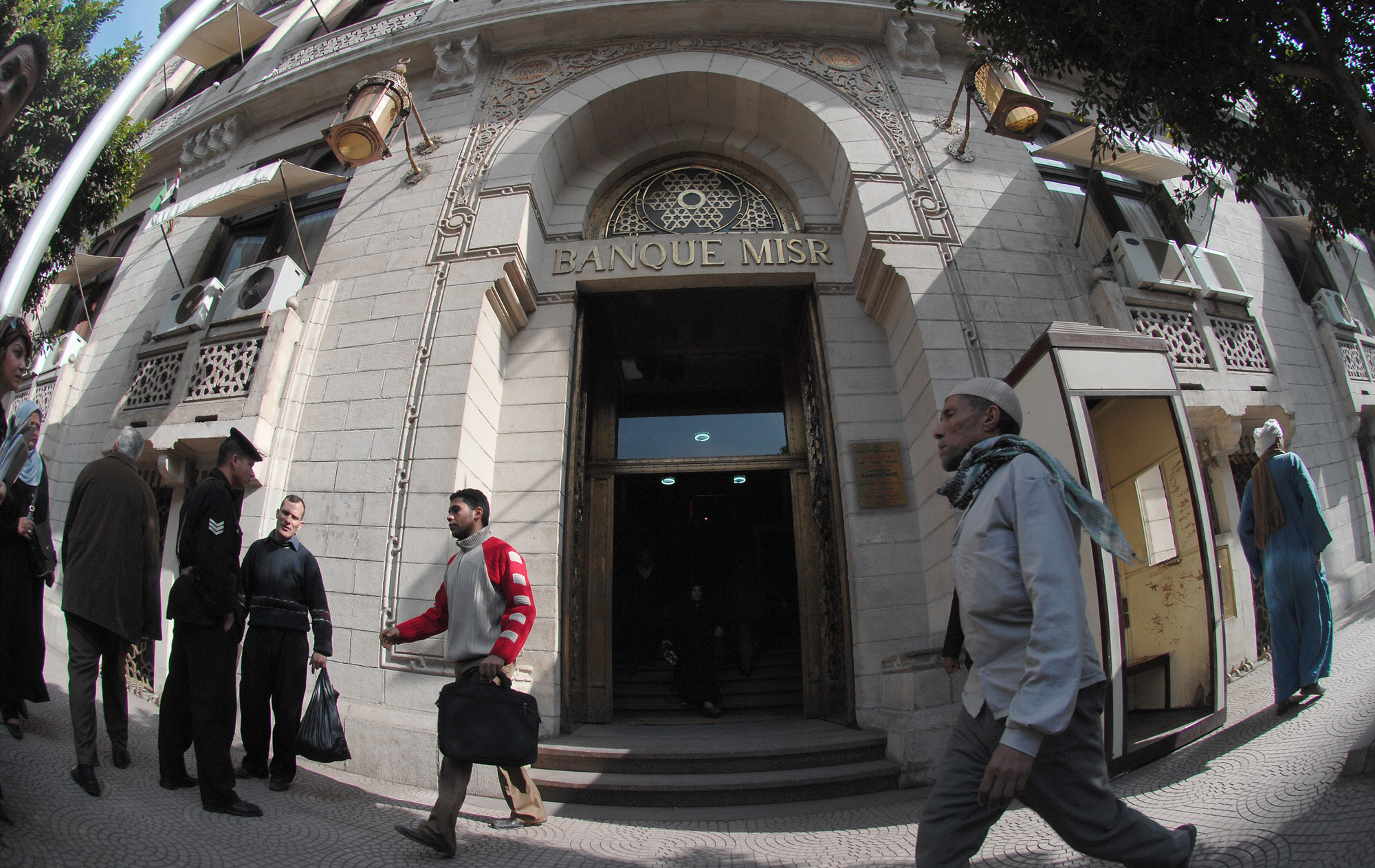Banks operating in the local market have tightened their precautions against the coronavirus (Covid-19) to protect their employees and customers, after several banks have reported cases inside their branches.
Local banks had already undertaken protective measures, but the detection of positive cases at several branches has forced them to implement further controls.
The Egyptian Arab Land Bank has announced that one of its employees died of the coronavirus on Thursday, and he had been on leave since 19 March.
In a statement, the bank said the building where the employee was present was vacated between 31 March and 5 April as a preventive measure, and it was sterilised to ensure the health and the safety of other workers and customers.
Moreover, Attijariwafa Bank – Egypt also announced that an employee at its headquarters had tested positive for the coronavirus. It added it had proactively taken all preventive measures.
The bank explained that, as of 5 March, its Executive Committee and Crisis Management Committee meet at least once a day to monitor the latest developments. The constant updates allow the bank to take the necessary decisions to avoid any further workplace infections.
Attijariwafa added that in view of transparency and its responsibility towards employees and clients, it immediately informed all employees of the positive case.
Additionally, the bank has also taken all necessary precautions recommended by the Egyptian Ministry of Health, the World Health Organization (WHO), and the Central Bank of Egypt (CBE).
It has disinfected and sterilised the affected building and determined the employees who dealt with the positive case and given them allowance for standard self-isolation. These steps come in addition to notifying all clients who may have dealt with the infected employee to take the same precautions.
The CBE published a video in which it underlined the importance of electronic payment channels to limit the spread of the coronavirus. It said that it has issued urgent instructions to banks to facilitate payments via mobile phones and bank cards, even if the customer does not have an account.
The CBE has set a daily temporary limit for deposits and cash withdrawals in bank branches of EGP 10,000 for individuals and EGP 50,000 for companies. The CBE exempted some categories from those limits, but called for limited banknotes transactions and urged citizens to rely on bank transfers and the use of the electronic payment. These include using bank cards and mobile phone wallets, to prevent the spread of the coronavirus.
Banque Misr Chairperson Mohamed El Etreby said setting a deposit and withdrawal limit, as well as use of electronic payment methods, are significant precautionary measures to limit the spread of the coronavirus.
Maged Fahmy, Chairperson of the Industrial Development Bank, said the CBE aims to cut the use of banknotes, which could carry the virus.
Bank Audi – Egypt’s Managing Director, Mohamed Bedair, said his bank is following CBE and state instructions to limit the spread of the coronavirus. This includes periodically sterilising all branches, and encouraging staff working at the bank’s headquarters to practice social distancing by either working from home or spreading them across several buildings.
The bank added that if any employee feels they or a close contact have coronavirus-related symptoms, they are obliged to inform the administration and self-isolate at home, following the necessary checks.
The bank has provided disinfectants that comply with WHO and Egyptian Ministry of Health specifications to all branches, in addition to face masks for treasury employees. The bank’s transport fleet was also subject to sterilisation, and is working on contracting with a specialised company to disinfect the banknotes in its possession.
The Arab African International Bank sent a letter to all its branches stipulating the application of exceptional procedures. These are in order to ensure the safety of its employees, in line with the measures taken by the state to prevent the spread of the coronavirus.
The bank’s precautionary measures include reducing the total number of its workforce present at its headquarters and branches by 50%, while ensuring that demand is met to maintain workflow. Employees follow five-day rotational shifts that do not discount their contractual benefits.
The bank also instructed employees to avoid gathering at public places such as sports clubs, gyms, cafeterias, restaurants, and malls and advised against travel except in the case of extreme necessity.
Hassan Ghanem, Chairperson and Managing Director of the Housing and Development Bank (HDB), stressed that due to the emergency conditions, the bank has reduced its the workforce at the bank level by up to 50%, granting paid leaves. The HDB is also providing personal sterilisation tools for workers, branches and central sectors, spreading awareness among workers about how to prevent the virus, providing thermal detectors, and reducing the number of clients present within the branch.
The procedures also include continuously feeding the ATM machines with maximum levels of cash whilst ensuring that the machines are also periodically sterilised.
For its part, the Industrial Development Bank has sterilised its main headquarters and branches, in addition to reducing the concentration of its employees. It has allowed up to 50% of its workforce to work from home, with priority given to pregnant and nursing women, and those with chronic diseases.




